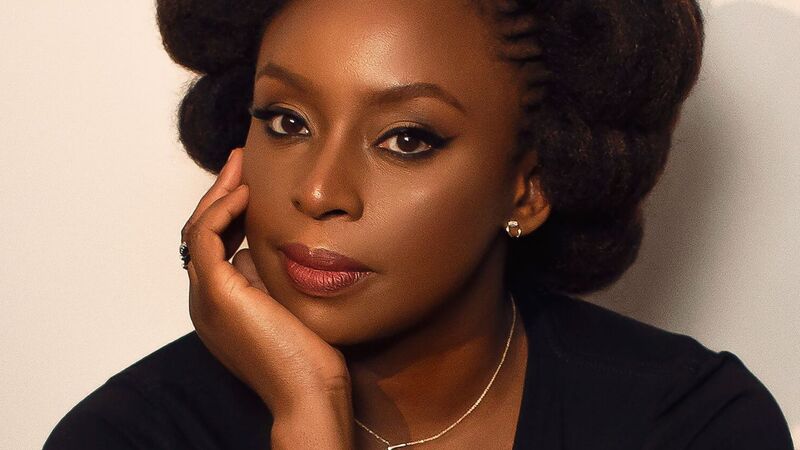You are viewing your 1 free article this month. Login to read more articles.
Calls for trade to tackle 'shocking' lack of black British male children's writers
More needs to be done to address the “shocking” lack of black British men writing and illustrating books for children, leading trade figures have said.
Research commissioned by BookTrust earlier this year showed just 0.35% of all unique titles published in the UK between 2007 and 2017 were written and/or illustrated by British men of colour. In 2017, British men of colour published a mere 0.61% of children’s titles – a low figure but actually nearly four times the 2007 figure of 0.17%.
Inclusive children's publisher Knights Of recently tweeted a call out for black authors to come forward, but despite interest, co-founder Aimée Felone said they came up against a brick wall. “There was lots and lots of pick up but actual people that are writing are few and far between,” she said. “I think the problem is partly does the black community know we exist for them to publish in? I’m not convinced that black male writers know that children’s publishing is a lucrative space to be publishing in.”
Felone said it was a systemic problem throughout the industry, explaining: “I’ve been looking to find, publish and acquire black British male voices pretty much since I’ve been in publishing but finding them is pretty much impossible.”
She said part of the problem was the ongoing lack of diversity at publishing houses. “I think the problem isn’t just reflected when it comes to creators but also it’s reflective of who is working in the offices as well,” she said. “If you somehow come to the conclusion that you love writing for kids, you might get into the editorial meeting and find that no one round the table looks like you.”
Dapo Adeola, co-creator of Look Up! with writer Nathan Bryan (Puffin), is one of a handful of black British men working in the children’s market. The 36-year-old said, after finally getting published after a decade of honing his skills, the started to get lots of offers and quickly discovered only one other black male illustrator appeared to be working in the UK industry.
“Between him and me I don’t know of anyone else,” he said. “That’s shocking. It’s absolutely crazy. I don’t know exactly what the reasons are but I suspect part of it is we don’t feel like this is a space that we can occupy. I think that feeling is had across the industry at large. You do have to see yourself in a space before you can occupy it.”
Adeola said that, when he and Bryan visit schools, the children and staff are “gobsmacked” they are both black. Yet he says there are “quite a few” self-published black male authors that are simply not getting picked up by publishing houses.
He said: “It then makes you think about who is behind these books, who’s on the other end? Who are the commissioning editors, what do they look like, do they represent the diversity the industry is lacking? Until that changes, I think it’s hard to change the front end.”
Adeola has now started holding workshops and recently held a meet-up at Pan Macmillan with 30 Black British illustrators in a bid to “open the door” for others.
Carnegie Medal-longlisted author Alex Wheatle insists black men can find success in books for young people. He said: “I knew my adult novels were getting overlooked. Everywhere I found I wasn’t put forward for any of the major literary festivals. Not listed for any major prize. Really it was pure frustration that led me to writing for young adults where I found the doors may open extra for me.”
His publishing career began with Brixton Rock (Black Amber) in 1999 band and has included YA books like 2015’s Carnegie Medal-longlisted Liccle Bit (Atom). But Wheatle said the expected wave following him and a small group of other black writers never materialised. He said: “When Toni Morrison died there were many UK black women writers saying she was inspirational to them and that what made them pick up their pens or typewriters. But if you’re a young black guy now who is there really to help you say ‘I can do this, black men can be successful’.
“I think these writers are definitely lacking but it’s because we don’t have a Malorie Blackman type figure for young black males to aspire to. So that means publishing houses aren’t getting as many submissions as they should. If I was a young black male today, talented at writing I might go into spoken word or grime.”
He went on: “In the last three years there’s been a shift and we’re now seeing young people of colour being represented in books. But we still need those black males in the industry writing for children and young adults, being visible.
“Hopefully, that will be my legacy, that people can see me and my career and say Alex Wheatle did well at this, that means I can do better. That’s what I really want to happen but at the moment it’s stalling. Black female writers are leaving us behind.”
He added: “We can’t just blame the publishers for this. We have to go from the ground up and that means black families or mixed race families introducing reading to their sons. That’s the way you engage them with the love of storytelling. If you do that, then the writers will come.”
Penguin Random House said had launched a number of initiatives to boost diversity, including its WriteNow programme to mentor and publish underrepresented new writers, including those from BAME backgrounds. It has also pledged support to Pathways and tried to make its work experience placements work accessible. PRH’s Start Your Story programme delivers interactive careers workshops to schools aimed at reaching young people who are unaware of opportunities in publishing.
At Usborne, director of global branding and UK marketing Anna Howarth said it was something all firms were trying to tackle. At her company that includes supporting Pop-Up CIC’s Pathways into Publishing scheme for BAME illustrators, along with its own Usborne Academy, launched in 2018 and providing a week-long, paid internship. Staff are also encouraged to use their annual volunteering time to go into schools to give talks on publishing.
She said: “I agree it's a problem, and one that we're trying to tackle from all angles - along with everyone else in the publishing industry.”
Jill Coleman, director of Children’s Books at BookTrust, said: “BookTrust’s research shows that authors and illustrators of colour are seriously underrepresented in relation to the population of children they write for. We know there is an enormous amount of talent out there, BookTrust Represents exists to find that talent, harness it and enable these creatives to have more visibility in the children's books industry. We continue to approach and seek to work with a wide variety of authors, illustrators and influencers who can help us widen the appeal of reading, so that every child, whatever their background, sees reading as ‘for them.”














